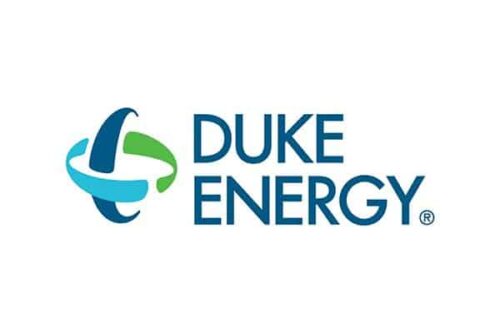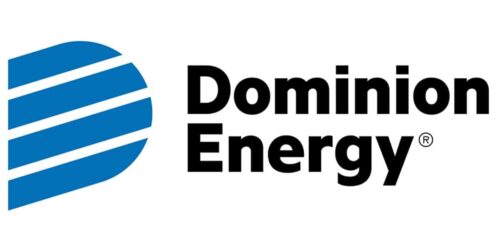Utility stocks aren’t exactly the most glamorous stocks, but they can certainly get the job done for any investment portfolio.
The demand for utility services has been steady over the years, making them a stable investment.
In the 21st-century household, utilities are a necessity to survive.
Essential electric utilities are more regulated and predictable than newer renewable energy sources, making them a stable investment.
Not every utility is created equally. The best investments are typically with innovative companies with noteworthy characteristics.
These companies are the ones that will be the most competitive in the stock market.
No investment comes risk-free, but utility stocks are some of the most stable stocks you can buy.
In this article, we’ll talk about some of the best utility stocks on the market right now.
Wondering where to buy the stocks in this article? Check out WeBull! Webull is an investment app that is great for both beginners and experienced investors alike. They don’t charge any commission fees and offer free stocks just for signing up!
What Are Utility Stocks?
Utility stocks are precisely what they sound like – stocks in utility companies.
The utilities sector includes the basics: water, natural gas service, and electric utilities, but in recent years have expanded to include alternative energies like wind, solar, and geothermal.
Utilities are a highly regulated industry, making it a challenge for new businesses to break into, as compared to other sectors.
They are also always in demand, even amid a pandemic, making them a great investment to have during a recession.
Because of this, utility stocks to be a consistent and vital part of any good investment portfolio.
Because of the strict regulations in this sector, utility companies have very predictable cash flow.
This means they can focus their efforts on expanding geographically or into different types of energy sources.
The rate that companies charge for their utilities are either contractual (non-regulated) or approved by a government entity (regulated).
The steady demand makes it easier for a company to predict their earnings and have a higher dividend yield than other stocks.
Best Utility Stocks

AES Corp
AES (AES) may offer low dividend yields when compared to other companies (2.2%), but you should not overlook it just yet.
Unlike many other electric utilities on the market, AES finished the year with an 18% gain.
AES is based in Virginia and provides electricity across 15 countries in South America, Asia, and Europe.
AES uses natural gas, coal, oil, hydroelectric, solar, wind and biomass to create electricity.
36% of the company’s adjusted pre-tax incomes come from the U.S.
The company saw a 5% dividend growth in December 2020.
The diversity in AES’s power sources, paired with the fact that it is already in a low-risk sector, makes it an excellent investment.
By 2024, AES hopes to generate at least half its power from renewable sources like wind and solar.
NextEra Energy
NextEra Energy (NYSE: NEE) is a Florida-based company that operates a regulated utilities business.
The company controls roughly 12.77% of electric utilities across the U.S., making them one of the country’s largest electric utility companies.
They are also the world’s largest producer of wind and solar energy.
NextEra’s focus is on clean energy, a good sign for investors after Joe Biden’s election.
His campaign primarily focused on the expansion of clean energy.
The company’s competitive energy business in natural gas & renewable energy projects bring stable income with long-term fixed contracts.
Despite dips in the market due to the coronavirus pandemic, the company grew its stock 27% by the end of November 2020.
NextEra Energy expects the competitive energy business to raise their EPS at a 6% to 8% compound annual increase through 2023.
The company does pay dividends, but it is on the lower end of the scale at 1.85%.
Don’t overlook it just because it doesn’t have high-yield dividends.
They did see an 11.3% increase in year-over-year earnings per share in the third quarter.
Utility Dividend Stocks

Duke Energy
Duke Energy (NYSE: DUK) is an energy holding company focused on natural gas.
Regardless of the economic climate, Duke Energy is a stable investment because energy is always in demand.
The proof is in their growth; the company saw a 7% year-to-date growth by November 2020.
The company also beat their earnings projections for the past four quarters.
Duke Energy has a dividend payout ratio of 73.5%.
Investors get a great return-on-investment, while still leaving wiggle room for company projects and growth.
The dominance of the southeasU.S.rn US energy market and consistent revenue make Duke Energy a stable stock to invest in for dividends.
Duke Energy Florida, a subsidiary of Duke Energy, recently announced its plans to invest in electric cars, solar energy, and other renewable energy sources.
The venture includes $5 billion in base rate increases over the next three years.
This company is a pretty safe investment option for those looking to minimize their risk.
While no stock is totally without their risks, the company’s the company is mainly shielded from economic impact because of the services they provide.
The proof is in their profits.
High Dividend Utility Stocks

Dominion Energy
Dominion Energy (NYSE: D) is one of the highest dividend yields you can invest in right now, with a dividend payout ratio of 88.68%.
The company provides electric utilities in Virginia, North Carolina, and South Carolina.
They also offer natural gas in Utah, West Virginia, and several other states.
Unlike other utility companies, Dominion energy performs at a nearly 5% increase in year-to-date gains despite the coronavirus pandemic.
Dominion Energy is a stable dividend stock amid the pandemic because of the type of energy it provides.
Dominion has continued to do well during economic hardship. Why?
Because even when consumers are staying home and spending less, they still are using energy.
In some cases, more people staying home comes with increased energy use.
Edison International
Edison International (EIS) is a large corporation that serves nearly 5 million residential, commercial, and industrial customers across 100,000 miles of cables.
Their primary focus is electric utilities, and they use natural gas, hydroelectric, diesel, and nuclear energy sources.
Edison International has a dividend yield of 4.9% while still being able to reinvest in the company itself.
The company has recently made headlines for its ambitious $437 million project in Southern California.
The project hopes to build about 40,000 electric car chargers, the largest project of its kind in the energy sector.
KeyBanc and Seaport Global have recently given a buy recommendation to Edison International, and in July, UBS reaffirmed their recommendation as well.
Water Utility Stocks

American Water Works
American Water Works (NYSE: AWK) is based in New Jersey and went public in 2008.
The company provides water and wastewater services to New Jersey, Pennsylvania and 14 other states.
The company is the largest traded water and wastewater utility in the U.S.
American Water Works is currently trading at a market cap of $27 billion.
Over the past decade, the company has seen consistent growth from a cap of $5 billion.
Their main sources of income is from water services to residential homes, commercial real-estate, and military bases.
The company foresees that it will raise its dividends 7% to 10% through the year 2024, making it one of the fastest growing utility companies.
The outlook is driven by its multi-billion dollar investment plan to expand their operations.
They’re able to fund this thanks to its top-rating from credit rating agency S&P Global.
The billion dollar expansion project is a smart investment for the company. Why?
Because everyone needs water and wastewater services.
Even with the large cost of this project, American Water Works has been able to consistently have a dividend yield of 50% to 60%.
Global Water Resources
Global Water Resources (GWRS) is based in Phoenix, Arizona.
The utility company operates as a water and wastewater utility company and recycled water.
Recycled water is not common across the U.S., but is vital to dry climates like Phoenix.
Water is recycled by taking wastewater and treating it to purify it.
The water is then distributed to local communities over the pipeline.
Global Water Resources went public in 2016 and has increased its dividends every year since.
Dryer climates that receive less rainfall can benefit from recycled water, something that this company capitalizes on.
It’s not used for drinking, but instead is for outdoor purposes only like irrigation.
Global Water Resources has been able to grow quickly in the past decade because Phoenix’s population rose by 18%.
This utility company pays its dividends on a monthly basis as opposed to a quarterly basis like most utility companies.
Best Utility Stocks For Long Term

Brookfield Infrastructure Partners
Brookfield Infrastructure Partners (NYSE: BIP) has a diversified holding portfolio that includes natural gas and other regulated utilities, transportation, and data infrastructure.
The company’s diversity creates a generally stable cash-flow.
Brookfield is an interesting company to invest in because while data infrastructure and transportation are technically not utilities, they have become an important part of every day life.
Brookfield expects to deliver a 5% to 9% annual FFO growth in the coming years, making them a viable option for a long-term investment.
The company generates more than $6 billion in revenue annually.
What makes Brookfield a stable long-term investment is that 95% of their cash flow is regulated or under contract.
This essentially guarantees a return-on-investment.
Are Utility Stocks a Good Investment?
The infrastructure of utilities is costly to build and maintain.
While this does make it a stable investment, not every stock will be.
When deciding what utility stocks to invest in, you need to consider the company’s investment-grade bond rating, leverage metrics, and dividend payout ratio.
A company’s bond rating is the equivalent of an individual’s credit score.
Higher ratings allow a company to borrow money more easily and at a lower rate.
Utilities companies often borrow money to fund maintenance and new projects, so a higher bond rating is favorable to investors.
Low leverage metrics are an indicator that a company is financially stable.
If a company takes on too much debt they are limited on their ability to grow.
Two notable metrics to consider are EBITDA (debt in relation to income) and debt to total capital.
Ideally, a company should have an EBITA of less than 4.5 times and a debt-to-total capital of less than 60%.
The dividend payout ratio is how much of a company’s profit goes towards investors in the form of dividends.
While it benefits the consumer to have a high-yield dividend, it may not always be a good sign of a company’s health.
If a company pays out too much in dividends, it does not have as much cash to reinvest and expand.
Utility stocks are overall sought after for the stability they provide an investment portfolio.
Many utility companies saw substantial gains even amidst the coronavirus pandemic, while most regular holdings saw dips due to the economic climate.
Looking for even more great investment ideas? Check out Trade Ideas! Trade Ideas is an innovative software program that uses AI technology to help you find new investment opportunities.
Utility Stocks: Final Thoughts
Utility stocks are unique because they usually do well despite the current economic climate.
They capitalize on basic human needs meaning there will always be a demand for their services.
The coronavirus pandemic served as a prime example of the stability in utility stocks.
Everyone needs water and electricity, even when they’re staying home.
Investors who are seeking quick growth may not find what they are looking for with utilities.
These stocks are steadier, but with that comes slow growth.
They’re a great option for investors that want a low-risk, long-term strategy.
The utility sector is also highly regulated, preventing too many players from entering the field at a time.
While many of these utility companies are stable investments, no investment comes without its risks.
As with any stock, you should make sure you research the company and its history before you invest your hard-earned money.
You can also lower your risk by investing in exchange traded funds and mutual funds focused on utilities stocks.


 Tags:
Tags:










